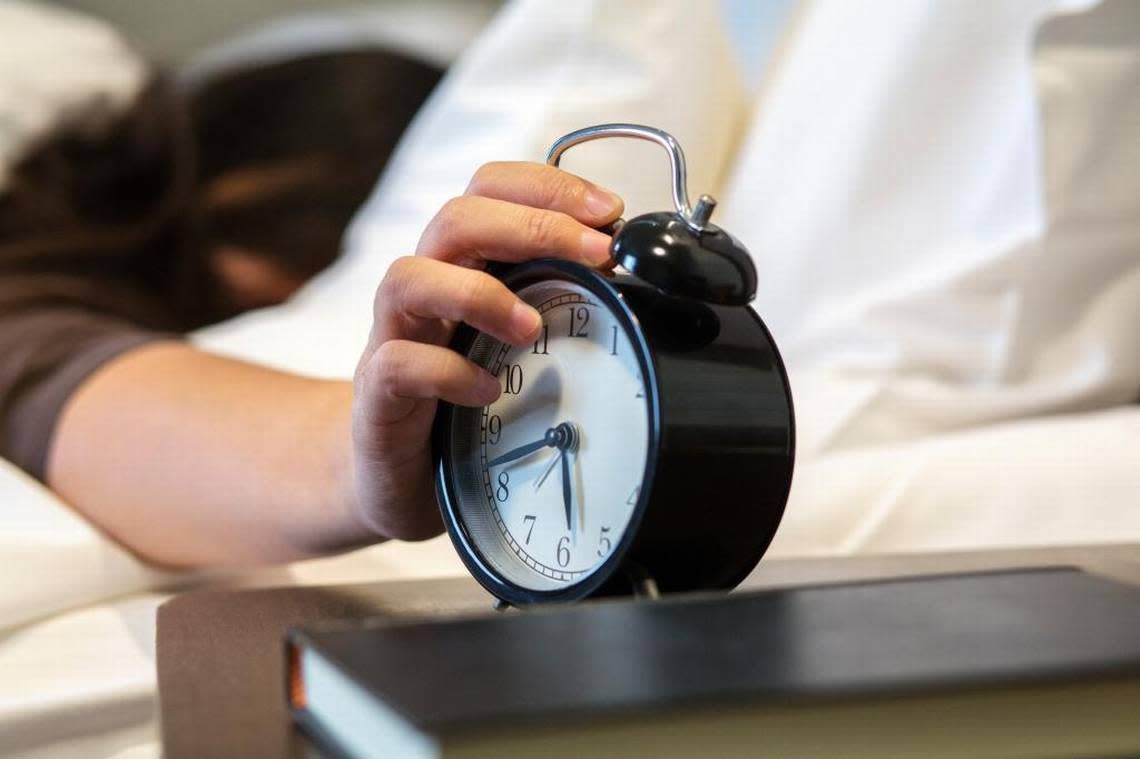How long does it take to adjust to daylight saving time? California sleep expert answers

As the sun graces California with extra daylight in the afternoons, the human body can have a hard time adjusting to the time difference.
How long does it take for the body to adjust to daylight saving time?
Here’s what a California sleep expert told us:
How does daylight saving time affect the human body?
Temitayo Oyegbile-Chidi, a neurologist and sleep specialist at UC Davis Health, said the human body naturally follows the sun.
“When we change the time on the clock to be an hour against the sun, it throws our bodies off,” she said in a phone interview with The Sacramento Bee.
Though time only shifts by an hour, she said the time difference still impacts a person’s sleep schedule, brain activity, metabolism and immune system.
Associated Press medical writer Lauran Neergaard puts it this way:
“The brain has a master clock that is set by exposure to sunlight and darkness,” she wrote in an AP story published last week. “This circadian rhythm is a roughly 24-hour cycle that determines when we become sleepy and when we’re more alert. The patterns change with age, one reason that early-to-rise youngsters evolve into hard-to-wake teens.
“Morning light resets the rhythm. By evening, levels of a hormone called melatonin begin to surge, triggering drowsiness. Too much light in the evening — that extra hour from daylight saving time — delays that surge and the cycle gets out of sync.”
How long does it take for bodies to adjust to the time difference?
“Some have argued two weeks, and others have argued it takes about a full month to reset,” Oyegbile-Chidi said.
Though the adjustment period can differ for each individual, she said “the Monday after daylight saving time are when people are more likely to be thrown off or feeling” under the weather.
“People tend to feel this way because they’re not realigning as quickly,” Oyegbile-Chidi said.
What are some tips on how to adjust to the time difference?
Most experts — Oyegbile-Chidi included — say preparation is key to adjusting quickly. The best thing you could have done before the clocks sprung forward:
“Start slowly adjusting your body to the time change two weeks before daylight saving,” she said. “Start going to sleep five minutes earlier everyday before, so that you can be a little more ready for the sudden change.”
Eating habits should also be slowly changed two weeks before, Oyegbile-Chidi said.
“You want to have your wind-down period of about 30 minute to an hour about five minutes earlier everyday for two weeks before you go to sleep,” she said. “Everything should be shifted, including exercise and caffeine consumption.”
If you didn’t do that and now you’re feeling the effects, Cleveland Clinic has some tips to adjust:
Stick to your schedule for eating, socializing and exercise.
Expose yourself to bright light in the morning (step outside!).
Don’t take long naps, as they could inhibit your ability to fall asleep later.
Avoid caffeine and alcohol roughly four to six hours before bedtime.
Don’t spend time on your phone or other electronics right before bed.
What do you want to know about life in Sacramento? Ask our service journalism team your top-of-mind questions in the module below or email servicejournalists@sacbee.com.

